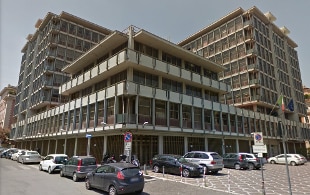- "Discriminated consumers", Antitrust proceeds against Telepass
- From the Antitrust fine from 287 million to corrugated cardboard companies
- Antitrust: 2.2 million euro fine for Vodafone, Wind and Fastweb
- Antitrust: hand luggage, fines for Ryanair and Wizz Air
Share
by Tiziana Di Giovannandrea 15 November 2019The Antitrust Authority has fined Deutsche Bank for unfair commercial practices.The Piazza Verdi Authority imposed a fine of 4 million euros on Deutsche Bank for the "Fai + 1" advertising campaign which promised a 1 percent premium for those who brought their investments to Deutsche Bank.
The proceeding started on the basis of reports from both the Altroconsumo consumer association and another consumer. Whistleblowers have complained about the alleged misconduct of the advertising spread by the German credit institution in the period between January and April 2019 through the Internet, television commercials and advertising leaflets illustrating the commercial initiative aimed at offering services with the use of capital by current account holders and savers starting from a minimum of 30,000 euros.
According to Altroconsumo the prize was the result of a series of intricate rules to be observed simultaneously, plus some restrictions. Not an increase of 1% of the invested capital as an electronic voucher to be used in an agreed circuit. Circuit of which even by reading the Rules of the prize competition it was not discovered much and that did not even have a reference website.
The Milanese consumer association immediately felt that it was misleading and incorrect advertising based on what the Consumer Code provides for a number of reasons.
• First of all, from the advertising message the average user thought he could have 1% of the capital transferred as a bonus: in financial terms a premium of + 1% means an increase in capital of 1% but as ascertained by the Guarantor Authority of Competition and the market, so it was not for a number of reasons:
• There were limits to be met (under 30,000 euros you get nothing).
• Transfers had to have minimum values.
• The premium is actually, not an increase in the value of the invested capital, but rather a package of points transformed into euros according to specific rounding rules and usable only as an electronic voucher in establishments affiliated with a third company, issuer of the same vouchers, which they are not even well explained in the Regulation.
• In many cases the recognized premium does not exceed 0.44% of the amount invested therefore far from + 1%.
The Authority presided over by Roberto Rusticelli requested, in the case of a provision relating to the banking sector, the prior opinion of the Bank of Italy as required by the Consumer Code. The Italian Central Bank for its own profiles has replied that: "There are no grounds for impeding the assessments reserved for the Authority".
Previously, the AGCM also requested the opinion of the Communications Regulatory Authority in consideration of the fact that the commercial practice was disseminated via the internet and through television advertising.
At the conclusion of the proceeding, the Authority responsible for protecting competition on the markets considered the Altroconsumo and other consumer reports valid, believing that the bank failed to provide clear indications both on the nature of the premium and on the calculation conditions, for the purposes of its acquisition. In practice, the credit institution advertised the "Fai + 1" transaction using messages that induced the saver / consumer to believe that these were premiums consisting of a 1% increase in the value of the capital employed.
In the end the unfair commercial practice led the Antitrust Authority to impose the pecuniary administrative sanction of 4 million euros on Deutsche Bank.
Against this decision the German bank announced that it would appeal to the TAR expressing: " Great surprise both for the entity of the sum and for the scarce attention to the multiple defensive considerations and to the remedial behaviors put in place towards the consumers".

